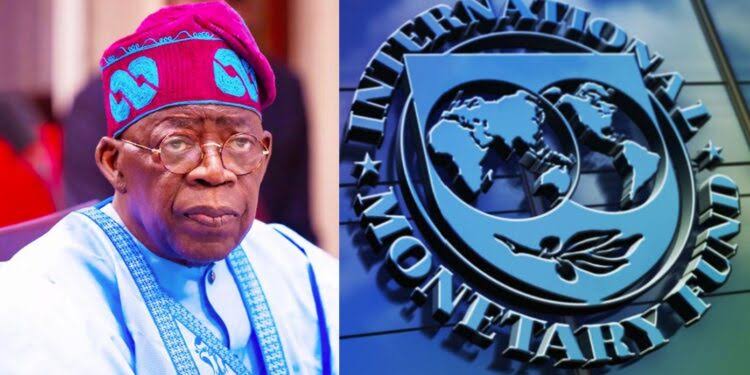In a significant milestone for Africa’s largest economy, Nigeria has fully repaid the $3.4 billion loan it obtained from the International Monetary Fund (IMF) at the height of the COVID-19 pandemic. The repayment was completed on April 30, 2025, ahead of the agreed timeline, marking a strong signal of fiscal responsibility and improved debt management.
A Lifeline During Crisis: The 2020 IMF Loan
At the onset of the COVID-19 pandemic in 2020, Nigeria, like many developing economies, faced a deep economic contraction, plunging oil prices, and mounting healthcare challenges. To cushion the blow, the country turned to the IMF, securing a $3.4 billion loan under the Rapid Financing Instrument (RFI).
The RFI was designed to provide emergency financial assistance to countries experiencing urgent balance of payments needs. Nigeria used the funds to support public health spending, protect vulnerable groups, and stabilize key sectors of the economy. The loan played a crucial role in preventing economic collapse during the pandemic’s most turbulent months.
Accelerated Repayment and Fiscal Discipline
Though originally structured for a longer-term repayment, Nigeria successfully completed the debt repayment ahead of schedule, thanks to what observers describe as improved fiscal discipline and stronger external reserves.
According to the IMF’s Resident Representative in Nigeria, Christian Ebeke, the final repayment was made by April 30, 2025. While Nigeria will continue to make minimal Special Drawing Rights (SDR) charges estimated at $30 million per year until 2029 the principal debt has been fully cleared.
This early clearance was seen as both a symbolic and practical move to bolster international investor confidence and demonstrate Nigeria’s commitment to financial responsibility.
Exit from IMF Debtor List
Following the full repayment, Nigeria has been removed from the IMF’s list of debtor nations. A document titled “Total IMF Credit Outstanding – Movement from May 1 to May 6, 2025” confirmed Nigeria’s absence from the updated register. Previously, the IMF list featured 91 countries with outstanding debts totaling $117.8 billion.
The exit positions Nigeria among a small group of developing nations that have recently cleared pandemic-era debts. It also gives the country a more favorable standing in future negotiations with global financial institutions and investors.
Government Reaction and Strategic Positioning
Reacting to the development, O’tega Ogra, Senior Special Assistant to President Bola Ahmed Tinubu on Digital Engagement and Strategy, described the move as “a signal of discipline, transparency, and a renewed economic vision.”
He emphasized that Nigeria remains a member of the IMF and will continue to collaborate with the organization but from a position of partnership, not dependence. This marks a strategic shift in how Nigeria intends to engage with international financial institutions in the future.
Economic Implications: Progress with Caution
While the repayment is widely viewed as a positive development, Nigeria still faces significant economic challenges. As of December 2024, Nigeria’s total external debt stood at $44.9 billion, with key creditors including:
• Eurobond holders – $15.6 billion
• World Bank – $14.5 billion
• Exim Bank of China – $4.3 billion
• African Development Bank – $2.2 billion
Experts caution that debt sustainability remains a concern. For Nigeria to continue on a sustainable path, it must focus on expanding non-oil revenues, cutting unnecessary expenditures, improving tax efficiency, and accelerating structural reforms especially in power, transportation, and technology.
Investor Confidence and the Road Ahead
The IMF loan repayment comes at a time when Nigeria is seeking to attract foreign direct investment (FDI) and strengthen its macroeconomic fundamentals. Analysts believe this bold move could improve Nigeria’s credit rating, reduce borrowing costs, and enhance the country’s image as a serious economic player on the continent.
However, challenges such as inflation, exchange rate volatility, and youth unemployment continue to pose risks to the broader economic outlook. The government’s ongoing reforms such as fuel subsidy removal, exchange rate unification, and digital infrastructure expansion will need to be carefully implemented to achieve long-term gains.
Conclusion: A Reset, Not the Finish Line
Nigeria’s repayment of the $3.4 billion IMF loan is a clear signal of its desire to reset its fiscal image and pursue a more sustainable, self-reliant development strategy. While the achievement is laudable, it must be matched with long-term reforms, inclusive growth strategies, and institutional accountability.
As Nigeria turns the page on pandemic-era debt, the focus now shifts to consolidating gains, managing future borrowing wisely, and empowering sectors that can deliver jobs and inclusive growth for its 200+ million citizens.








